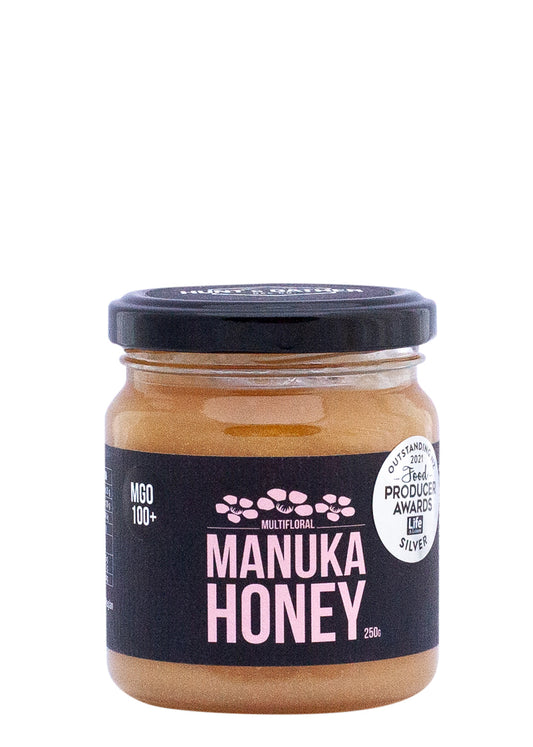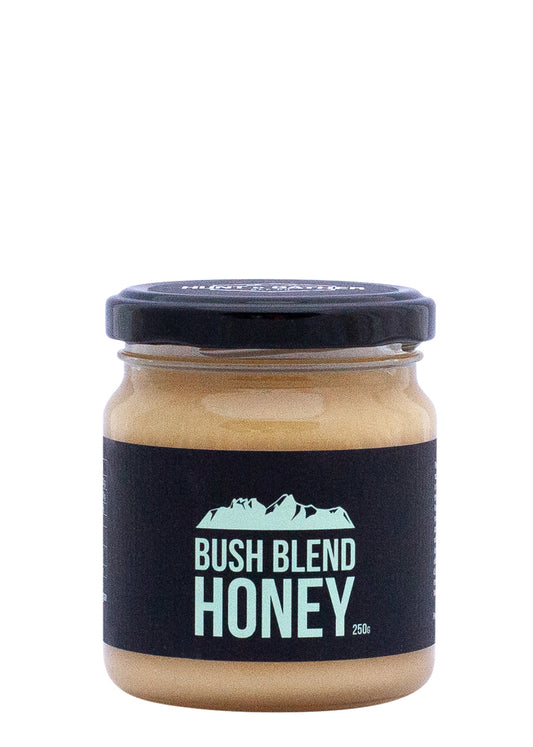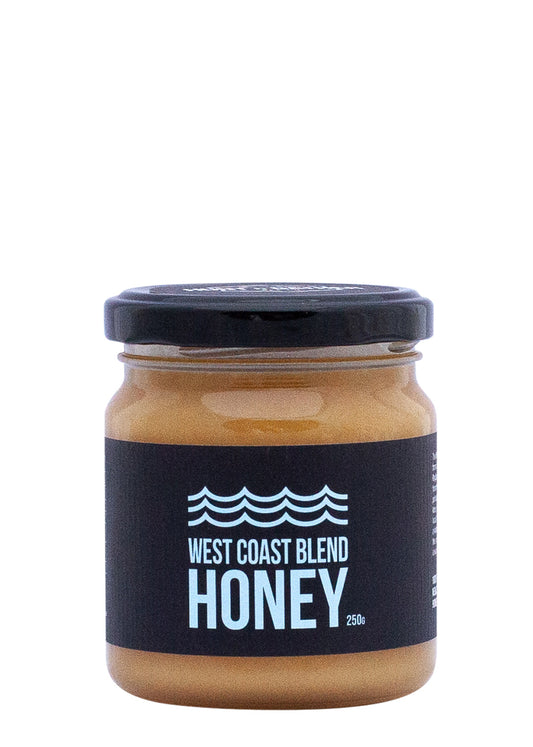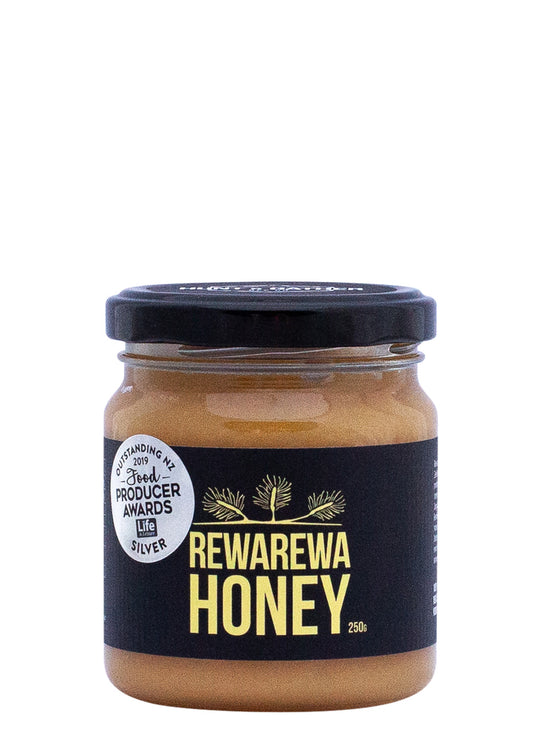
September is Bee Aware Month - hosted by Apiculture New Zealand, it is aimed at getting people on board with looking after our bees and making life more cosy for them. And what do you know, this year the theme is ‘Show me the Honey’. How deliciously convenient!
So I thought I would put together a bit of a ramble about honey; honey in general, and our honey to be more specific.
Honey is an amazing food. It’s the only food we eat that is made by insects (unless you are counting deep fried crickets, which I am not) and is the only food that includes all the substances necessary to sustain life, including enzymes, vitamins, minerals, and water. Honey contains a range of antibacterial agents, antioxidants, probiotics, flavonoids, anti-fungal agents, yeasts and beneficial bacteria, depending on the kind of nectar those clever little bees have gathered to make their honey. My Google search of ‘health benefits of honey’ also claims honey will cure cancer, heal burns, wounds and ulcers, rid you of gastro-enteritis, prevent heart disease, regulate blood sugars, assist with weight-loss, improve eyesight, cure impotence, urinary tract disorders, asthma, diarrhoea and nausea and improve athletic ability. And who am I to question what I find on Google? Let’s just run with it.
With Hunt and Gather Bee Co., we decided right from the start that we wanted to deliver a product that is as natural, raw, and pure as possible. For this reason, our honey has been filtered, but otherwise is exactly as it comes out of the hive. There are so many wonderful health benefits from eating raw honey that we didn’t want to do anything to it that might harm the natural goodies in it. As soon as honey is heated beyond 40 degrees celsius, most beneficial activity is destroyed and you have pretty much made sugar; very expensive sugar!

One of the things about having raw honey though is that natural granulation processes begin to occur, and change the consistency of the honey. If you have tested out our honey at a market, you may have noticed that all of our honeys have a different texture. Some are really smooth, others have some natural granules in them. This happens because honey has such a naturally high sugar content (about 70%). In really good quality honey, the glucose sugar molecules will eventually separate from the fructose molecules and form small crystals. Although grainy honey might not seem desirable, it actually means that your honey is pure, low in water content, and has plenty of glucose content.
Not everyone enjoys that bit of crunchiness in their honey though, and we would love your feedback on our honey. There are a few options of ways to delay the granulation process.
Firstly, you can heat, and pasturise the honey. Lots of large honey producers will do this to stop their honey from granulating. This doesn’t even get a second thought from us though as heating our honey would destroy all the good bits that our customers are looking for in their honey. Our other option is to cream the honey; basically if you whip the honey with something similar to a giant egg beater, it goes all pale, creamy and smooth, and this really delays the crystallisation process. This is something that we would seriously consider doing with our more grainy honey, and something that lots of honey producers do.
Once you get your honey home, there are a few things that you can do to keep it tip-top as well. Firstly, don’t keep it in the fridge. Ideally honey should be stored around 20 degrees celsius, so keep it in the pantry, and wrap it in a tiny blanket on cold nights (just kidding). It’s also best stored out of direct sunlight. If your honey is grainy, and you would rather that it wasn’t, you can melt it by putting the jar in a warm water bath for an hour or so. It’s really important not to get water in your honey jar (so don’t dip wet spoons in there to scoop your honey out), as it will start to ferment with the natural sugars and yeasts in the honey and you will end up with honey mead. As long as it doesn’t come into contact with water, honey will last forever and ever.
We want to make a product that our customers love, and we are always looking for ways to improve. We would truly appreciate your feedback on our honey - do you like the natural graininess in our honey, or would you prefer a natural smoothness that we could achieve by creaming it? If you have a minute, write a comment below and tell us your thoughts.






3 comments
Thanks so much for your feedback ladies! Marg I also love a creamy honey and I think that we will at least experiment with creaming some and see how it turns out. Good idea to remove it from the fridge Viv it will keep better. The only problem is if you get ants; if you do just stand the jar in a small saucer of water in your pantry, they won’t go across the water to steal your honey. I’m so happy to hear that you both like the natural nature of the honey though x
Thanks for the great informative read.
I love the natural consistency of your honey.
Have just removed mine from the fridge..?
Personally I love a smooth creamed honey and think the addition of one of these to your range would be awesome. Your flavours are so good. Personally I love your bush blend. All fantastic.